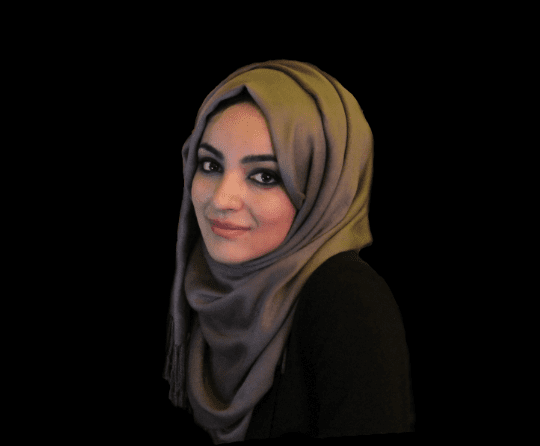Omar Saad, the viola player who made headlines in 2013 for refusing to serve in the Israeli army, his two violinist brothers, Mostafa and Gandhi, and their cellist sister Tibah make up a classical string quartet – the Galilee Quartet.
From Beethoven symphonies to songs by legendary Arab singers such as Fairuz and Um Kalthoum, the siblings’ exceptional performances have captivated crowds in Europe and in the Middle East. Their political and social struggles have also put them under the spotlight.
The siblings, from the village of Maghar near Nazareth, played their first tunes at a young age. Art and the passion for art runs in the family, Tibah says. “Our parents both shared the same goal of teaching us and giving us this opportunity,” she continues.
The Saad siblings are all members of the Palestine Youth Orchestra, which was established in 2004 by the Edward Said National Conservatory of Music. Last year, they played with the orchestra in venues across the UK, concluding the tour with a concert at London’s Royal Festival Hall where they received a full standing ovation.
![Mostafa Saad, centre, rehearsing with the Palestine Youth Orchestra in 2016 in London [Jehan Alfarra/Middle East Monitor]](https://i0.wp.com/www.middleeastmonitor.com/wp-content/uploads/2017/08/2017_08_8-Galilee-QuartetMostafa-Saad-rehearsing-with-the-Palestine-Youth-Orchestra-in-2016-in-London.jpg?resize=1200%2C800&ssl=1)
Mostafa Saad, centre, rehearsing with the Palestine Youth Orchestra in 2016 in London [Jehan Alfarra/Middle East Monitor]
Unforgettable performances
That wasn’t the first time the siblings played in the UK. Omar’s first concert in the country was in 2015, when Amnesty International organised a tour following his release from military prison for refusing the draft seven times. The family quartet has since toured in the UK several times.
In 2013, the three brothers played with the BBC Proms monumental concert with Nigel Kennedy and the Palestine Strings in London’s Royal Albert Hall, winning the hearts of millions in Britain who tuned in for the live broadcast. Their performance was described by the Independent newspaper as “hauntingly beautiful”, while BBC Music Magazine praised their “mesmerising Arabic style”.
Mostafa, who was only 16 years old at the time, went back to play a duet solo with Nigel Kennedy, who hailed him as “a name for the future”, at the Last Night of the Proms.
The quartet’s most recent UK tour was in June 2017. Organised by Palmusic in collaboration with Amos Trust, the quartet held concerts in London and in Oxford. In each they played a number of classical western and Arabic pieces including some by Beethoven, Fairuz, Mohammed Abdel Wahab as well as their own compositions.
![The Galilee Quartet rehearsing ahead of a concert at St. James' in London [Jehan Alfarra/Middle East Monitor]](https://i0.wp.com/www.middleeastmonitor.com/wp-content/uploads/2017/08/2017_08_8-Galilee-QuartetThe-Galilee-Quartet-rehearsing-ahead-of-a-concert-at-St.-James-in-London.jpg?resize=1200%2C800&ssl=1)
The Galilee Quartet rehearsing ahead of a concert at St. James’ in London [Jehan Alfarra/Middle East Monitor]
Political struggle
When Mostafa returned to the UK in 2014 to play with Nigel Kennedy once more during Bethlehem Unwrapped, Omar was in military prison.
Like other Druze born with Israeli citizenship, the Saad brothers are eligible for conscription at the age of 18 as per a 1956 Israeli law requiring all Druze males to serve three years of compulsory military service. “We identify ourselves as a part of the Arab, Palestinian nation,” Omar says.
His refusal was inspired by similar action taken by his father in the past, and his brother, Mostafa, has now also gained an exemption from military service.As part of the Palestinian nation, as part of the youth orchestra, I couldn’t see myself replacing my musical instrument with a rifle, and denying my fellow brothers and sisters from entering their cities Jerusalem, Nazareth, Tiberias and Galilee.
Omar’s open letter to Israeli Prime Minister Benjamin Netanyahu in 2012 explaining why he was a conscientious objector, declaring, “I will not be the fuel to the fire of your war”, went viral. “I declare that I will refuse to serve in the army even if I’m jailed 60 times,” he wrote on Facebook.
“It was a very difficult experience,” Omar explains, describing his struggle inside prison after contracting a liver infection. “Because of the medical negligence I arrived at the hospital in the last moments and after 11 days in the Intensive Care Unit, I was released and sent back home for 40 days.” Upon his recovery, Omar had to go back to complete a total of nine months in prison before being exempt from military service.
“The only thing that kept me going were my family and my friends and also my will to continue in music,” he continues.
“Music is a way of resistance,” Tibah adds. “You need to give the best image of you as a human, and I think music is the best and purest way to do so because music is expression of feelings.”
With the support of Palmusic, Omar and Tibah are now gearing up to study music at the Royal Conservatoire of Scotland in Glasgow this September. However, their dreams do not stop there.Omar hopes to one day join a renowned orchestra. “Maybe first viola in a very important orchestra in order to ask for people to come to Palestine and create together a Palestinian institute for higher musical education and arts education,” he explains.
“I hope and I dream that we will be the group that will teach chamber music and viola, violin and cello there,” Omar adds.
Gandhi, the quartet’s youngest member, also dreams of becoming a prominent soloist; “a violin soloist with a great orchestra,” as well as travelling the world with the quartet “to play for peace and love and for humanity.”



![Omar Saad rehearsing ahead of a concert in London [Jehan Alfarra/Middle East Monitor]](https://i0.wp.com/www.middleeastmonitor.com/wp-content/uploads/2017/08/2017_08_8-Galilee-QuartetOmar-Saad-rehearsing-ahead-of-a-concert-in-London.jpg?resize=500%2C333&ssl=1)
![Tibah Saad rehearsing ahead of a concert in London [Jehan Alfarra/Middle East Monitor]](https://i0.wp.com/www.middleeastmonitor.com/wp-content/uploads/2017/08/2017_08_8-Galilee-QuartetTibah-Saad-rehearsing-ahead-of-a-concert-in-London.jpg?resize=1200%2C800&ssl=1)








